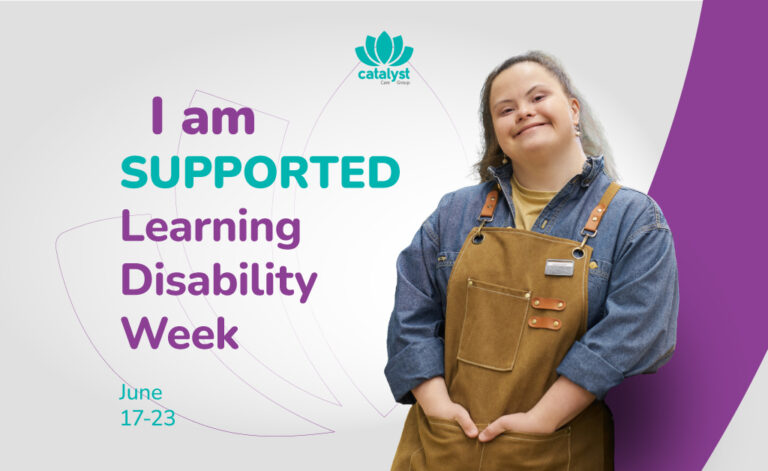How do health and social care services support people’s involvement in shared decision-making about their care, treatment and support? To what extent are people actively involved in their own care?
National healthcare research, including our white paper publication, reveals that over 40% of people want to be more involved in their care, and the numbers have hardly changed over the past decade. To learn more about shared decision-making, keep reading.
Involving People in Their Own Care
Over the past decade, people have experienced increased involvement in their care, from prevention and improved well-being, to individual decision-making and self-management.
However, as our white paper results suggest, more needs to be done to involve people in their own care, to involve communities and the voluntary sector in improving health and well-being outcomes and to coordinate and personalise care and support.
Key Findings
Based on our recent systematic review and different clinical practices, we have outlined several findings regarding involving people in their care.
For individual involvement in health and care, there are:
- Supported evidence of improved outcomes
- Supported evidence for best practices
- Clear, stated policy commitment, but with varying degrees of active national support
- Supported examples of effective local practices
- Consistent lack of systematic progress or improvement
To facilitate changes that will ensure greater involvement, we need:
- Continuous and effective national support
- Recognition and addressing of the different perspectives on involvement
- Effective leadership challenges
- Well-organised processes to empower citizens as care recipients, healthcare providers, clinicians, managers, and community workers to be active and equal partners
Placing involvement at the centre of policy and practice creates a foundation for building an effective and sustainable health and care system and contributing to a more equal and inclusive society.
Why Is It Important to Involve People in Their Own Health and Care?
When exploring the role of people as independent agents of their own health, we conclude that only when people are ‘fully engaged’ in their own healthcare can we limit the escalating costs of health and social care provision associated with the increase of physical and mental health challenges. These shifts in engagement have not occurred in isolation. Individuals and disability groups have played a crucial role in challenging power imbalances and drawing attention to instances of substandard care and neglect.
In tandem with the evolution of the social model of disability, these groups have been instrumental in reshaping perceptions regarding the abilities and roles of individuals and their potential for active participation.
Benefits of involving people in their own care include:
- Improved health and well-being
- Improved quality of care
- Improved financial sustainability and efficient allocation of resources
History and clinical practice have also emphasised the impact of not involving people. Several consecutive reports, initiated in response to negative occurrences in healthcare and social services, have determined that in the majority of instances, considerable harm could have been averted and financial resources conserved had organisations heeded the input of those they serve.
How Do We Involve People in Their Care?
Engaging individuals in decisions regarding their healthcare will enhance their well-being, improve the quality of care, and promote informed use of healthcare resources. Empowering individuals enhances their quality of life and adds to their overall fulfilment. The current challenge lies in shifting the focus of care and support services from asking, “What is the matter with you?” to “What matters to you?”. Health professionals need to focus on what matters to individuals and ensure they foster active decision-making.
Personalised Care and Support Planning
Personalised care and support planning is a structured approach to ensure that individuals living with one or more complex conditions receive support through proactive discussions with their clinician or healthcare professionals. These discussions should prioritise the individual’s priorities (their goals) and the assistance required to maintain their health and well-being.
This process involves sharing information, identifying both medical and non-medical support needs, exploring various options, planning for unforeseen circumstances, setting objectives, documenting the conversation (often in the form of a care plan), and monitoring progress through regular assessments.
Shared Decision-Making
Shared decision-making involves collaboration between care recipients and healthcare professionals. The process is guided by the best practices and the individual’s preferences. This implies considering all possible choices, including the decision to take no action, and assessing the risks and benefits associated with each option. It means people have a say in their treatments, management strategies, or support plans.
Additionally, it involves providing decision support and establishing a method for documenting and executing the chosen course of action. In situations where multiple options exist, the person’s values and preferences should be as significant in determining which option to pursue.
Individual Health Budgets and Integrated Personal Commissioning
Personal health budgets and integrated personal commissioning aim to enhance individual outcomes and satisfaction by providing greater autonomy and influence over the care received. They revolve around personalised care and support planning, enabling individuals to determine how they wish to address their health and well-being in tailored ways.
Care recipients who could benefit from a personal health budget should encounter a systematic, well-coordinated approach to their care and support, as outlined in the evolving framework of integrated personal commissioning. Basic information about personal health budgets and their management options is accessible through the NHS Choice Framework.
Equal Access to Health and Social Care
Ensuring accessibility to health and social care services is essential. Everyone should have access to comprehensive information that empowers them to understand their health better. Since August 2016, all organisations offering NHS healthcare or adult social care are legally obligated to adhere to the Accessible Information Standard.
This standard is designed to ensure that individuals with disabilities, impairments, or sensory loss receive easily readable or understandable information. Additionally, services must provide supplementary support where necessary, such as arranging for the presence of a British Sign Language interpreter at appointments. By implementing this standard, individuals with disabilities, impairments, or sensory loss are assisted in becoming more informed about their health and more engaged in effectively managing it.

Different Perspectives of Involvement
This brief and partial history of individual involvement highlights the various motivations that have played a role in shaping it.
These perspectives encompass the following interconnected approaches:
•Democratic perspective: individuals possess political, social, and economic rights as citizens, and people who use or are impacted by a public service should participate in its governance and have specific entitlements regarding the services they receive.
•Ethical and outcome-based approach: engagement is regarded as the morally correct action and the most effective method to improve outcomes for people. This entails acknowledging that quality care involves tailoring evidence-based support to individual situations, drawing upon both knowledge and practical experience. People’s participation is crucial in assessing the balance of risks and benefits inherent in decision-making.
• Values-driven approach: to maximise the efficiency of our health and care system, it is imperative to understand and address the needs and desires of individuals. This enables us to provide care aligned with their preferences, ensuring people receive both necessary and desired care.
• Sustainability: as the prevalence of long-term conditions rises and the population ages, health systems face growing challenges in delivering optimal care to all. By engaging individuals in managing their own health and care and promoting wellness and independence, we can reduce reliance on services and mitigate strain on resources.
• Person-centred approach: our health and care system should prioritise people, fostering independence and organising services around an individual’s needs rather than fragmented and isolated structures. However, the true power of this approach lies in the person’s engagement, which is integral to providing a more personalised service that is adaptable and responsive to individual needs and preferences.
Focus on Rights and Responsibilities
Based on King’s Fund resources, Healthwatch England has been discussing the rights and responsibilities for health and social care to provide a framework to ensure that the voices of people and the public are heard in the healthcare system. Expectations regarding individuals’ roles in health and care mirror the belief that people can contribute to the effective functioning of services and the reasonable usage of limited resources. These responsibilities may manifest in various ways:
• Responsibility to fulfil the conditions for access to treatment
• Responsibility to take care of your own health and well-being
• Responsibility to meet agreements or good standards of social behaviour in your contact with services (such as not missing your appointments without reason)
The idea that individuals should have greater influence in decisions concerning their health and care and that services should more effectively accommodate their needs and preferences has been a policy objective of the government and senior health policymakers for at least two decades.
People advocate for it, and evidence demonstrates that when engaged, decisions are enhanced, leading to improved health outcomes and more efficient resource allocation.
Positive Impact of Involving People in Their Care
Catalyst Care Group provides humanised care that actively engages individuals and family members in their care. We adapt our approaches and tailor our support, ensuring that the individuals we serve remain at the forefront of high-quality, person-centred care. Through a proactive approach, we help people achieve improvements in their health outcomes and overall quality of life.
Here’s how we actively involve people in their healthcare:
Contact us today to see how we can collaborate.










